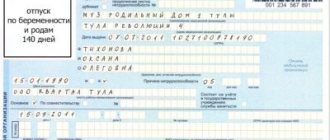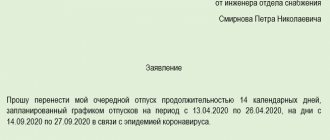A highly qualified specialist (HQS) has certain preferences when applying for a job in Russian companies, as established by the legislation of the Russian Federation.
The concept of a highly qualified foreign specialist includes foreign employees, citizens of both visa and visa-free countries, whose annual salary is more than two million rubles. For highly qualified foreign employees, a work permit may be issued with the right to carry out work activities. A HQS permit is issued for a period of up to three years with the opportunity to work in several regions of the Russian Federation.
Prices for services for obtaining a work permit for a foreign HQS
| Service | Price, rub. | Number of days |
| Obtaining a work permit for a foreign highly qualified HQS specialist | 30,000 rubles | 14 working days |
| Extension of work permit for HQS | 30,000 rubles | 14 working days |
| Issuing an invitation to enter for a foreign employee or his family members | 6,000 rubles | 14 working days |
| Applying for a multiple work visa for a high-tech professional | 6,000 rubles | 14 workers days |
| Registration of VKS for tax registration | 10,000 rubles | 2-3 weeks |
| Submitting a quarterly notification of the fulfillment of obligations to pay wages to a highly qualified specialist to the Federal Migration Service of the Russian Federation | 2,500 rubles | 5 workers days |
| Submitting a notification for granting unpaid leave to HQS to the Federal Migration Service of the Russian Federation | 2,500 rubles | 5 workers days |
The employer must notify the territorial Directorate for Migration Issues of the Main Directorate of the Ministry of Internal Affairs of the conclusion of an employment contract with a highly qualified foreign specialist within three working days from the date of conclusion of the employment contract. It is also necessary to notify quarterly of the fulfillment of obligations to pay wages to the HQS in the established amount and of granting a highly qualified specialist leave without pay if the leave is more than one calendar month. The validity of a work visa for a HQS is also three years.
The procedure for registering a foreign highly qualified specialist can be used by:
- Russian commercial organizations;
- Russian scientific organizations and institutions of professional education and healthcare;
- organizations carrying out scientific, scientific-technical and innovative activities, experimental developments, tests, personnel training accredited in the Russian Federation;
- branches of foreign legal entities accredited in the Russian Federation;
- organizations that, within 2 years before the date of filing the petition, were not subject to administrative punishment for illegally recruiting foreign citizens or stateless persons to work in the Russian Federation, and also did not have, at the time of filing such a petition, outstanding decisions imposing an administrative penalty for committing specified administrative offenses.
Highly qualified specialists can be recruited by Russian companies: upon an application for the involvement of HQS, which is submitted by the employer or customer of work (services) to the territorial department of the Department of Internal Affairs of the Main Directorate of the Ministry of Internal Affairs of Russia, or a specialist can independently declare himself. In this case, he submits an application to the representative office of the Directorate for Migration Issues of the Main Directorate of the Ministry of Internal Affairs abroad, or to a diplomatic mission or consular office of the Russian Federation.
How to properly employ a foreigner in Russia with a work permit?
Before hiring a foreign citizen, you should first find out his status of residence in the country, i.e. whether he is an illegal immigrant, temporarily residing or staying in the territory of the Russian Federation and has opened a patent for work, or he has a residence permit or temporary residence permit. After this, you need to carefully study the migration documents of the foreign applicant, since non-compliance with standards or an expired expiration date threatens the employer with large fines.
A foreign citizen, after completing all the necessary papers and signing an employment contract, is introduced into the staff of the enterprise. The invited specialist must be familiar with his responsibilities, internal regulations of the company, etc. It is better to document this.
is carried out on the territory of the employer for the period of validity of the received work permit . The final step is to submit a notification to the migration services about hiring a foreign employee.
Obtaining a work permit for a highly qualified foreign specialist
The basic provisions for the implementation of the work activities of HQS can be studied in Article 13.2. Federal Law No. 115 “On the legal status of foreign citizens in the Russian Federation”, which was introduced by Federal Law No. 86-FZ of May 19, 2010. It specifies the procedure for processing and issuing a work permit for a highly qualified foreign employee; the extension of the employment contract and work permit occurs in accordance with the current administrative regulations.
Advantages of foreign HQS:
- the issuance of a work permit for a foreign HQS occurs regardless of quotas and is regulated by the list of positions in the relevant legislative act;
- there is no requirement to obtain a permit to attract foreign labor to the company;
- A work permit for a foreign employee can be issued for several regions of the Russian Federation. The period of a specialist’s work permit can be up to 3 years. The list of documents for registration of HQS has been shortened;
- the period for obtaining permission and invitation for a HQS work visa is 14 working days;
- A multiple-entry work visa for a highly qualified specialist is issued for the duration of the work permit (up to 3 years) immediately, and not as when applying for a regular visa through a single-entry visa. When extending the work permit of a foreign HQS, the validity of a multiple work visa and a visa for accompanying family members can be extended without leaving the Russian Federation;
- Almost all relatives of HQS can enter the Russian Federation on a visa for an accompanying family member for the duration of the work permit. Relatives of a highly qualified specialist have the right to work on a visa for an accompanying family member, and can also obtain a work permit outside the quotas using a simplified procedure;
- if a foreign citizen is in the Russian Federation on a work visa from another legal entity or on a foreign employee visa, then such a visa can be reissued without leaving the Russian Federation;
- The HQS has the right to carry out work activities on business trips in any region of the Russian Federation;
- HQS and their family members have the opportunity to carry out migration registration within 90 days from the date of entry into the Russian Federation; after registering for migration when moving around the Russian Federation, they have the right not to register for migration for 30 days;
- HQS income at the place of work is taxed at 13%, the employer pays only a tax of 0.02% to the Social Insurance Fund;
- The HQS and his family members have the right to obtain a residence permit in a simplified regime for the period of validity of the work permit;
- A work permit for a foreign specialist can be issued on behalf of a representative office or branch of a foreign company.
Disadvantages of attracting foreign HQS:
- obligation to pay wages of at least 2 million rubles per year and confirm payments quarterly;
- a work permit for a highly qualified specialist can be issued only from a limited list of organizations;
- issuance of a voluntary health insurance policy for the HQS and all members of his family is a prerequisite.
It is hardly possible to dispute the thesis that the presence of a highly qualified foreigner on the staff of any company increases not only the interest in the company on the part of the company’s clients and partners, but also their trust. In some cases, the presence of a foreign manager may indicate high standards of company management.
However, in addition to increasing reputational criteria and the need to pay such a specialist an increased salary, the employer should take into account a whole set of responsibilities that must be performed in connection with hiring a highly qualified foreigner.
What does an employer need to know when faced with hiring a foreign citizen with the status of a highly qualified specialist? In this article, we tried to take the most comprehensive approach to covering the responsibilities of the employer. For convenience, the following blocks are covered: issues of migration registration, wages of a foreign citizen - a highly qualified specialist, issues of fulfilling the obligation to notify the government agency about the payment of wages in the required amount.
I. _ ISSUES OF MIGRATION REGISTRATION
Registration of a foreign citizen, host party and responsibilities of the host party
One of the main issues that concerns many employers is the need to register a foreigner at his/her location address), as well as the distribution of responsibilities when a foreigner stays in a hotel.
The procedure for registering foreign citizens at the place of stay is regulated by Federal Law No. 109-FZ dated July 18, 2006 (as amended on July 29, 2018) “On migration registration of foreign citizens and stateless persons in the Russian Federation” (hereinafter referred to as the Law on Migration Registration , 109- Federal Law ).
| Additional Information According to Art. 2 of the Law on Migration Registration, there are the following legal terms in the field of recording the location of a foreign citizen on the territory of the Russian Federation: − place of residence; − registration at the place of stay; − place of residence; − registration at the place of residence. The obligation to register at the place of residence arises in the following cases: − having the right to use residential premises on the territory of the Russian Federation (Clause 1, Article 14 of the Law on Migration Registration); − whether a foreign citizen owns real estate in Russia (Article 15 of the Law on Migration Registration). |
According to clause 20 of the Government of the Russian Federation of January 15, 2007 No. 9 (as amended on October 26, 2016) “On the procedure for carrying out migration registration of foreign citizens and stateless persons in the Russian Federation,” foreign citizens temporarily staying in the Russian Federation, as well as permanently or temporarily residing in the Russian Federation, when staying in a place of stay that is not their place of residence , are required to register at the place of stay, with the exception of cases provided for in Part 6 of Art. 20 of the Federal Law [heads of diplomatic missions, sailors, aircraft crew members, etc.].
As a general rule is not subject to registration at the place of residence if he arrived in the Russian Federation for a period of less than seven days (Clause 5, Part 6, Article 20 of the Law on Migration Registration).
If a foreign citizen arrived in the Russian Federation for a period of more than seven days , he is subject to registration after seven working days from the date of arrival at the place of stay (Clause 2, Part 2, Article 20 of the Law on Migration Registration).
The responsibility for registering a foreign citizen at the place of residence lies with the receiving party (Article 22 of the Law on Migration Registration).
| Additional Information Receiving party (clause 7, part 1, article 2 of the Law on Migration Registration): − legal entity that provided a foreign citizen with residential or other premises for actual residence; or − an organization in which a foreign citizen, in accordance with the established procedure, carries out labor activities in the case of actual residence at the address of the specified organization or in the premises of the specified organization that does not have address data (building, structure), including temporary ones (Part 2 of Article 21 of the Law on migration registration). |
It should be noted that until July 8, 2018, the Law on Migration Registration provided a different legal definition of the receiving party in relation to organizations in which a foreign citizen works. The receiving party, in addition to the persons with whom the foreigner actually lived, could be a legal entity with which the foreign citizen carries out labor activities (is located).
Thus, until July 8, 2018, the receiving party had the right to be a legal entity in which a foreign citizen carries out labor activities (See, for example, Resolution of the Presidium of the Supreme Arbitration Court of the Russian Federation dated October 25, 2011 No. 5417/11).
As amended by the Law on Migration Registration dated July 29, 2018, there is no such employer right. We will go into more detail about registering a foreigner at the address of the company's location below.
There are often cases when a foreign citizen, upon arrival in Russia, stays in a hotel or other organization that provides hotel services. In this case, there is a special procedure for registering at the place of stay, and the receiving party is the hotel (Clause 5, Part 6, Article 20 of the Law on Migration Registration).
- Accommodation of a foreign citizen in a hotel
Accommodation of a foreign citizen in a hotel is regulated in a special manner (Part 3.1, Article 20 of the Law on Migration Registration and Clause 5, Part 6, Article 20 of the Law on Migration Registration):
the receiving party is obliged to notify the migration registration authority of the arrival at the place of stay of a foreign citizen ( register at the place of stay ) who arrived at the place of stay on a non-working day (including on one of the days within several non-working days), within one day , being a working day and immediately following a non-working day (several non-working days) (Part 3.1, Article 20 of the Law on Migration Registration).
Confirmation of the completion by the receiving party of the actions necessary for registration at the place of stay of a foreign citizen is a mark in the detachable part of the notification form about the arrival of a foreign citizen at the place of stay, affixed in the prescribed manner by the migration registration authority, hotel or federal postal organization.
Thus, when a foreign citizen regularly enters the territory of the Russian Federation and stays in a hotel, the obligation to register at the place of stay lies with the hotel. Confirmation of the hotel's fulfillment of the obligation to register a foreign citizen is the tear-off part of the notification form for registering a foreign citizen at the place of stay.
- Accommodation of a foreign citizen not in a hotel
If a foreign citizen does not check into a hotel , he is subject to registration at the place of stay within seven working days from the date of arrival at the place of stay (Clause 2, Part 2, Article 20 of the Law on Migration Registration).
At the same time, for a foreign citizen who is a highly qualified specialist, there is an extended period for registration (Part 4.1. Article 20 of the Law on Migration Registration) - 90 days from the date of entry into the territory of the Russian Federation instead of seven working days from the date of arrival at the place of arrival .
It seems reasonable to conclude that if the Law on Migration Registration establishes an extended period for registering a foreign citizen (90 days from the date of entry into the territory of the Russian Federation instead of seven working days from the date of arrival at the place of arrival), the period for providing notification by the receiving party arrival should also be counted as 90 days from the date of entry into the territory of the Russian Federation.
- Registration of a foreign citizen at the location (legal address) of the company
Until 07/07/2018, the practice of registering a foreigner at the “legal address” of the company was widespread. As mentioned above, previously the Law on Migration Registration provided such an opportunity
| Additional Information Until July 7, 2018, the term “place of stay” was defined as follows (clause 4, part 1, article 2): “The place of stay of a foreign citizen or stateless person in the Russian Federation (hereinafter referred to as the place of stay) is a residential premises that is not a place of residence, as well as other premises, institution or organization in which a foreign citizen or stateless person is located and (or) at the address of which a foreign citizen or stateless person is subject to registration at the place of stay in the manner established by this Federal Law.” |
Thus, upon the arrival of a foreign citizen in Russia, the employer had the right to register the foreign citizen with migration registration at his location (legal address).
On July 8, 2018, a new version of the Law on Migration Registration came into force, according to which the place of stay can only be the premises in which a person actually lives.
| Additional Information From 07/08/2018 “The place of stay of a foreign citizen or stateless person in the Russian Federation (hereinafter referred to as the place of stay) is a residential premises that is not a place of residence, or other premises in which a foreign citizen or stateless person actually lives (regularly uses for sleep and rest), or organization at the address of which a foreign citizen or stateless person is subject to registration at the place of residence in the case provided for in Part 2 of Article 21 of this Federal Law.” Part 2 of Article 21 of the Law on Migration Registration establishes: “A foreign citizen is subject to registration at the place of residence at the address of the organization in which he, in the prescribed manner, carries out labor or other activities not prohibited by the legislation of the Russian Federation, in the case of actual residence at the address of the specified organization or in the premises of the specified organization, which does not have address information. (building, structure), including temporary .” |
Thus, from 07/08/2018, registration at the location of the company (legal address) if the foreign citizen does not live there is prohibited .
In case of registration of a foreign citizen at the address of location (legal address), there will be a fictitious registration (clause 11, part 1, article 2 of the Law on Migration Registration), for which, among other things, criminal liability is provided in the form imprisonment for up to 3 years (Article 322.3 of the Criminal Code of the Russian Federation).
The employer is obliged to register a foreign citizen only if the employer provides the foreign citizen with premises for actual residence (dormitory, room, etc.). If a foreign citizen lives in another place, the obligation to register lies with the person with whom the foreign citizen actually resides.
- Obligation to register a foreign citizen at the place of stay
The procedure for hiring and carrying out labor activities in the Russian Federation of foreign citizens is regulated by Federal Law No. 115-FZ dated July 25, 2002 (as amended on July 19, 2018) “On the legal status of foreign citizens in the Russian Federation” (hereinafter referred to as the Law on the Legal Status of Foreign Citizens citizens , 115-FZ )
According to paragraph 3, part 1, art. 5 of the Law on the Legal Status of Foreign Citizens, the period of temporary stay in the Russian Federation of a foreign citizen who arrived in the Russian Federation in a manner that does not require a visa and is a highly qualified specialist, and the period of temporary stay in the Russian Federation of members of his family are determined by the validity period of the work permit [ until 05/06/2021], issued to such a highly qualified specialist in accordance with Art. 13.2 of the Law on the legal status of foreign citizens.
Article 13.2. The Law on the Legal Status of Foreign Citizens defines the specifics of labor activity by foreign citizens - highly qualified specialists. Among other things, this article defines a set of documents that must be provided by the employer to obtain a work permit for a highly qualified specialist:
1) an application to attract a highly qualified specialist;
2) an employment contract or a civil contract for the performance of work (provision of services) with an attracted highly qualified specialist, the entry into force of which is conditional on the receipt of a work permit by this highly qualified specialist;
3) a written obligation to pay (reimburse) the expenses of the Russian Federation associated with the possible administrative expulsion from the Russian Federation or deportation of a highly qualified specialist attracted by him.
As follows from the above list, among the documents required for obtaining a work permit there are no documents confirming the registration of a foreign citizen at the place of stay or registration at the place of residence.
It should be borne in mind that according to Part 17 of Art. 13.2. of the Law on the Legal Status of Foreign Citizens, in order to extend the validity period of a work permit for a highly qualified specialist, the employer or customer of work (services) no later than thirty days before the expiration date of such a permit submits it to the federal executive body in the field of migration or its authorized territorial body, including including documents confirming the registration of a highly qualified specialist at the place of residence . There are no negative consequences of failure to submit this document, since in accordance with Part 18 of Art. 13.2 of the Law on the Legal Status of Citizens, refusal to accept an employer’s application to extend the period of validity of a work permit for a highly qualified specialist is not permitted, except in cases where the employer fails to provide any of the documents provided for in paragraphs. 1 - 4 clause 17 art. 13.2 of the Law on the Legal Status of Citizens (the document on registration at the place of residence is not included in the specified list). If the employer fails to provide information about the registration of a highly qualified specialist at the place of stay, information about the registration of this specialist at the place of stay available in the state information system for migration registration (Part 18, Article 13.2 of the Law on the Legal Status of Citizens) is used.
The provisions of paragraphs require attention. 8 - 9 hours 9 tbsp. 18 of the Law on the Legal Status of Foreign Citizens, according to which a work permit is not issued to a foreign citizen , and the issued work permit is canceled by the territorial body of the federal executive body in the field of migration in cases where the foreign citizen:
- left the Russian Federation for a foreign country for permanent residence;
- has been outside the Russian Federation for more than six months.
According to Part 2 of Art. 327.6 of the Labor Code of the Russian Federation, cancellation of a work permit is the basis for termination of an employment contract with an employee who is a foreign citizen.
According to Part 27 of Art. 13.2 of the Law on the legal status of foreign citizens, highly qualified specialists and members of their families who arrived in the Russian Federation for the duration of an employment contract or a civil contract for the performance of work (rendering services), upon their application in writing, can be issued resident card .
Thus, there is no obligation to register a foreign citizen during permanent international business trips.
II . SALARY OF A FOREIGN CITIZEN - HIGHLY QUALIFIED SPECIALIST
As a general rule, the salary of a highly qualified specialist should be at least 167 thousand rubles. for one month (Clause 1, Article 13.2 of the Law on the Legal Status of Foreign Citizens).
When determining the salary of a foreign worker, it should be taken into account that wages include not only remuneration for work, but also compensation payments (additional payments and allowances of a compensatory nature), as well as incentive payments (additional payments and allowances of an incentive nature, bonuses and other incentive payments ) (Part 1 of Article 129 of the Labor Code of the Russian Federation).
Within three days from the moment of termination of the contract with a highly qualified specialist, the employer is obliged to notify the territorial body of the Ministry of Internal Affairs of Russia in the constituent entity of the Russian Federation in the territory of which the foreign citizen carries out labor activities, about the termination of the contract with such an employee[1].
According to Part 30 of Art. 13.2 of the Law on the Legal Status of Foreign Citizens, the specifics of taxation of income of highly qualified specialists who have received a work permit are established by the legislation of the Russian Federation on taxes and fees.
In accordance with paragraph. 4 p. 3 art. 224 of the Tax Code of the Russian Federation, the tax rate is set at 30 percent in relation to all income received by individuals who are not tax residents[2] of the Russian Federation, with the exception of income received from labor activities as a highly qualified specialist in accordance with the Federal Law dated July 25, 2002 No. 115-FZ “On the legal status of foreign citizens in the Russian Federation”, in respect of which the tax rate is set at 13 percent (see, for example: Resolution of the Ninth Arbitration Court of Appeal dated August 18, 2015 No. 09AP-29534/2015 in case No. A40-1148/15).
In addition, the Federal Tax Service of the Russian Federation, in Letter No. KE-4-3/6735 of the Federal Tax Service of Russia dated April 26, 2011, also indicated that as long as a foreign citizen retains the status of a highly qualified specialist, the rate will be applied to his income under an employment contract 13 percent.
Thus, the tax rate payable on income received from employment as a highly qualified specialist is 13 percent.
III . NOTICE OF PAYMENT OF SALARY TO A FOREIGN CITIZEN - HIGHLY QUALIFIED SPECIALIST
The employer is obliged quarterly, no later than the last working day of the month following the reporting quarter , to notify the Ministry of Internal Affairs of Russia or its territorial body that issued a work permit to a highly qualified specialist, accordingly, about the fulfillment of obligations to pay wages to a foreign citizen. The notification is issued as of the last day of the quarter of the calendar year [3]. The notification form was approved by Order of the Ministry of Internal Affairs of Russia dated January 10, 2018 No. 11 “On the forms and procedure for notifying the Ministry of Internal Affairs of the Russian Federation or its territorial body about the implementation of labor activities by foreign citizens (stateless persons) on the territory of the Russian Federation.”
Proper confirmation of the fulfillment of the obligation to pay wages is the mark of the state body on the copy of the notice, as well as the mark on the certificate of acceptance of the notice (The recommended sample is given in Appendix No. 2 to Order of the Ministry of Internal Affairs of Russia dated January 10, 2018 No. 11).
This responsibility is one of the main responsibilities of employers who have a highly qualified specialist on their staff. Fine for late notification of salary payment to a highly qualified specialist (Part 5 of Article 18.15 of the Code of Administrative Offenses of the Russian Federation): from 400,000 rubles to 1 million rubles. It is recommended to keep a log of notifications submitted to the state body, preserving the original documents with a mark from the state body in the field of migration that the notification has been accepted.
[1] Clause 2 of the Procedure for the submission by employers or customers of work (services) of notification of the conclusion and termination of employment contracts or civil contracts for the performance of work (rendering services) with foreign citizens (stateless persons) studying full-time in the Russian Federation in a professional educational organization or educational organization of higher education under the main professional educational program that has state accreditation, as well as on granting them unpaid leave for more than one calendar month during the year, approved by Order of the Ministry of Internal Affairs of Russia dated January 10, 2018 No. 11 (hereinafter – Order of the Ministry of Internal Affairs of Russia dated January 10, 2018 No. 11).
[2] In accordance with paragraph 2 of Art. 207 of the Tax Code of the Russian Federation, tax residents are individuals who are actually in the Russian Federation for at least 183 calendar days over the next 12 consecutive months.
[3] Clause 2 of the Procedure for the submission by employers and customers of work (services) of notifications about the fulfillment of obligations to pay wages (remuneration) to foreign citizens (stateless persons) - highly qualified specialists (approved by Order of the Ministry of Internal Affairs of Russia dated January 10, 2018 No. 11.
Author: Violetta Korolkova, lawyer in the litigation practice
What to ask the FMS for
The Federal Migration Service of Russia provides services for accepting applications from employers (customers of work (services)) to attract highly qualified foreign specialists, processing, and issuing work permits to these specialists. These services are provided on the basis of the Administrative Regulations (approved by Order of the Federal Migration Service of Russia, the Ministry of Health and Social Development of Russia, the Ministry of Transport of Russia and the Federal Fisheries Agency of January 11, 2008 N 1/4/1/2, registered by the Ministry of Justice of Russia on April 09, 2008 for N 11480).
To issue a highly qualified foreign specialist a work permit and issue an invitation to enter the Russian Federation for the purpose of carrying out work activities (if necessary), the employer (customer) submits the following documents to the Federal Migration Service of Russia (clauses 6, 7, 14 of Article 13.2 of Law No. 115-FZ):
- application for the involvement of a specialist;
- an employment contract (civil contract for the performance of work (provision of services)) with the hired specialist, the entry into force of which is conditional on the receipt of a work permit by the specified person;
- a written obligation to pay (reimburse) the expenses of the Russian Federation associated with the possible administrative expulsion from its borders or deportation of the attracted specialist;
- a copy of the certificate of state registration of a legal entity or an extract from the state register of branches of foreign legal entities accredited in Russia, if the employer is a branch of a foreign legal entity.
In an application to hire a highly qualified specialist, the employer or customer of work (services) reflects the following information:
- on the competence and level of qualifications of a foreign citizen;
- documents confirming that this specialist has professional education.
A highly qualified specialist and his family members arriving in the Russian Federation who are foreign citizens must have:
- a medical insurance agreement (policy) valid on the territory of the Russian Federation or
- the right, on the basis of an appropriate agreement concluded by the employer or customer of work (services) with a medical organization, to receive primary health care and specialized medical care.
The application form for attracting a highly qualified foreign specialist is approved by Decree of the Government of the Russian Federation of June 30, 2010 N 487.










